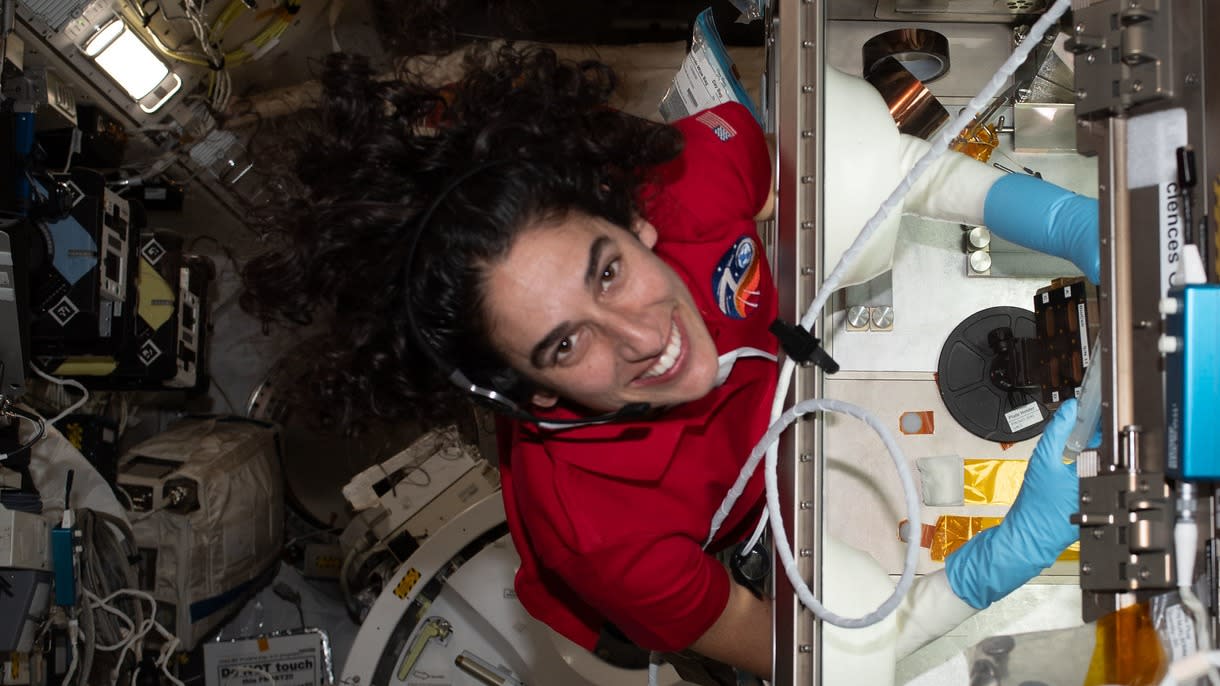NASA astronaut will celebrate Hanukkah in space with felt menorah

A NASA astronaut will "light" felt candles to celebrate Hanukkah in space.
NASA astronaut Jasmin Moghbeli plans to conduct the traditional lighting of the menorah in felt, given that the agency and International Space Station (ISS) wisely have restrictions against using fire aboard a spacecraft. The lighting will be done during Hanukkah, the Jewish festival which begins at sundown local time on Thursday (Dec. 7).
"My husband and little girls helped make a felt menorah, with lights for each night, that I can pin on to celebrate with them. So I'm excited to do that," Moghbeli said during a press conference in July, adding that her family celebrates both Hanukkah and Christmas.
Astronauts have found creative ways to celebrate holidays aboard the ISS over the years. Back in 2019 during Hanukkah, for example, Jewish astronaut Jessica Meir posted a photo of her feet in festive blue, neon green and purple socks, adorned with menorahs and representations of the Star of David.
Hanukkah is the Jewish festival that starts on the 25th of Kislev, a month on the Hebrew calendar that follows the cycles of the new moon. In the Gregorian calendar that much of the world uses, Hanukkah tends to fall in November or December, depending on the year.
RELATED STORIES:
— International Space Station — Everything you need to know
— NASA astronaut sees her parents' birth country from space. 'This may be the closest I will ever get'
— Canada assigns astronauts to launch on Boeing's Starliner, back up Artemis 2 moon mission
"Hanukkah reaffirms the ideals of Judaism and commemorates in particular the rededication of the Second Temple of Jerusalem by the lighting of candles on each day of the festival," Britannica writes of the festival.
The Second Temple, a central feature of Judaism, replaced an earlier temple destroyed by the Babylonians. The newer temple stood between either 516 BCE or 350 BCE (depending on the source) and 70 CE, when it was destroyed by the Romans, according to Harvard University. While the temple was never reconstructed, the western wall persists and remains a sacred site in Judaism.
In 2023, antisemitic incidents have been rising throughout the world following an intensification of the Israel-Hamas war; you can learn more about the war and its history at the Poynter Institute. The White House released a national strategy to combat antisemitism in May, and the United Nations has guidelines for educators and online environments.

